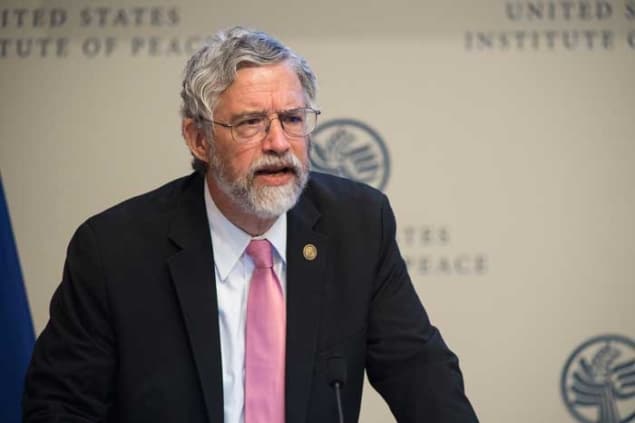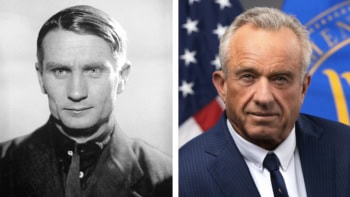
The influence of science and scientists on US government policy is being downgraded by the administration of US president Donald Trump – according to the physicist and former science adviser John Holdren. However, Holdren is hopeful that both the US Congress and private industry will reject some of Trump’s planned cuts to science funding.
Holdren served as presidential science adviser and head of the Office of Science and Technology Policy (OSTP) during Barack Obama’s presidency. He told Physics World that it was still unclear whether Trump will appoint a science adviser and senior OSTP staff, who must be approved by the Senate. “I think it would be a serious error if the president does not create a very serious science and technology capability in the White House.”
He believes that the Silicon Valley entrepreneur Peter Thiel is currently advising Trump on science and technology. “It’s pretty clear he knows a lot more about technology than about science. There’s a rumour that the OSTP may be more technology-heavy than science-heavy.”
Pretty lonely
While OSTP leadership appointments are on hold, Holdren says that “one member of the Trump ‘landing team’, Michael Kratsios, has been working very hard to understand the role of science adviser”. “I’m told that he has a good idea of the role. But will he have the ear of the Trump administration? He may be pretty lonely.”
Holdren says that one week before the presidential inauguration in January a member of Trump’s campaign team visited the OSTP. “We spent an hour talking about the functions of the OSTP and the science adviser. We had prepared a very detailed transition book with documentation of all the OSTP’s responsibilities, which we handed over. That was the last we heard.”
Major setback
Holdren fears that the influence of scientists at the White House is waning. He says that Trump’s proposed budget in March “shows no sign of any significant input from anyone who understands science’s role in making recommendations on government policy for government agencies’ science and technology budgets”. Holdren hopes that the budget will be rejected by the US Congress, and calls the plan “a major setback for research, climate science, energy research – just devastating cuts for government support in domains where companies aren’t involved”.
Holdren points out that the proposed cuts will affect programmes that have direct benefits to American society – citing the $6bn drop in the budget of the National Institutes of Health and proposed cuts to NASA’s Earth-observation programmes.
However, Holdren believes that initiatives in science education and the Obama climate action plan both have strong industry support. Although under threat, he says these programmes are likely to survive. “The majority of technology companies accept that climate change is real and we need to do something about it,” he says, adding that the US must ensure that it remains competitive in the development of climate-friendly technologies.
An interview with Holdren will appear in the May issue of Physics World.



